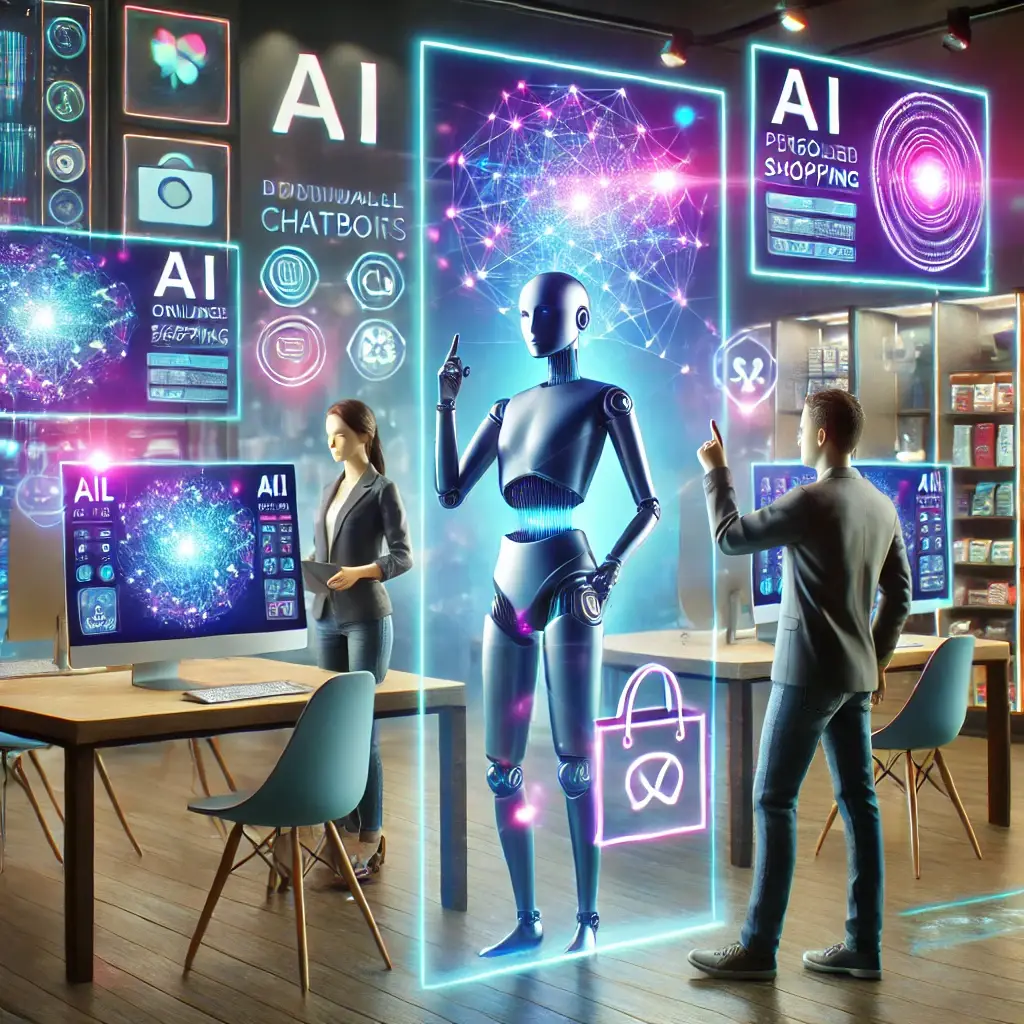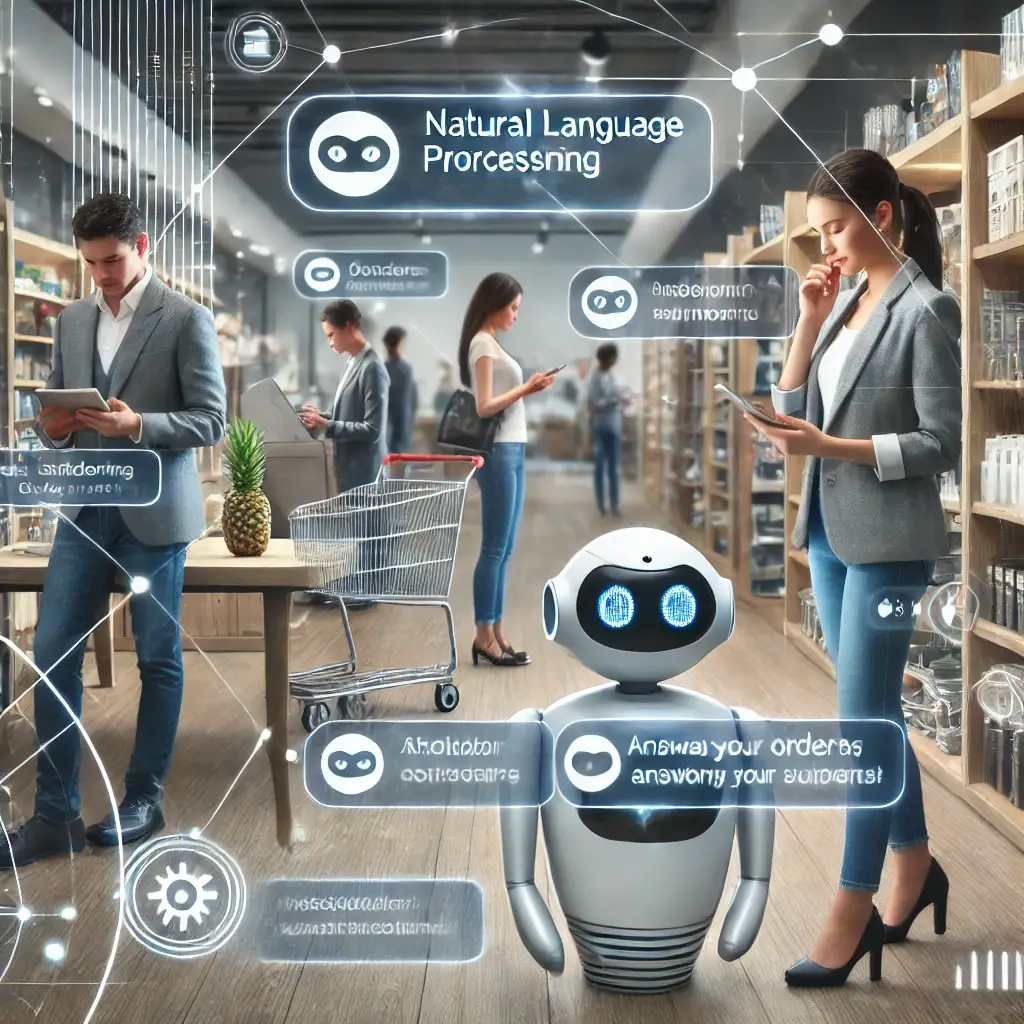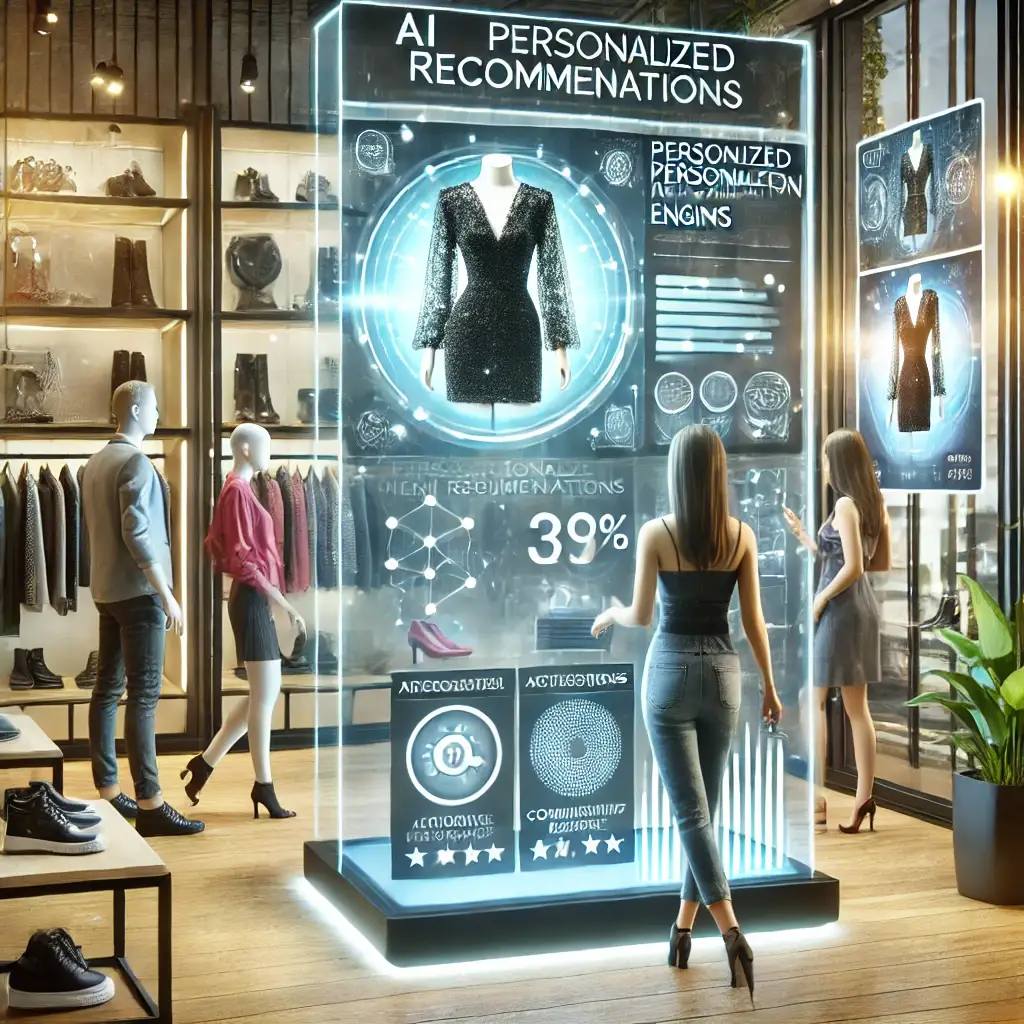

Let’s know how Chatbots and Personalized recommendation engines are Transforming retail.
The retail industry has undergone significant transformations in recent years, with the rise of e-commerce, social media, and mobile devices changing the way consumers shop and interact with brands. Amidst this shift, Artificial Intelligence (AI) chatbots and Personalized recommendations have emerged as a game-changer, revolutionizing the retail landscape with their ability to provide personalized experiences, streamline operations, and drive sales. In this article, we’ll delve into the world of AI in Transforming retail, exploring how chatbots and Personal Recommendation engines are transforming retail in the industry.
Table of Contents
The Rise of Chatbots in Transforming Retail
Chatbots have become a staple in modern retail, offering customers a convenient and efficient way to interact with brands. These AI-powered conversational interfaces can handle a wide range of tasks, from answering frequently asked questions to processing orders and providing customer support. Retailers are leveraging chatbots to improve customer engagement, reduce operational costs, and enhance the overall shopping experience.
Chatbots are particularly effective in handling routine inquiries, such as product information, return policies, and order tracking. By automating these tasks, retailers can free up human customer support agents to focus on more complex issues and provide a higher level of personalized service. Moreover, chatbots can be integrated with other AI technologies, such as natural language processing (NLP) and machine learning, to provide more accurate and relevant responses.

Personalized Recommendation Engines: The Future of Personalized Retail
Personalized Recommendation engines are another area where AI is making a significant impact in retail. These algorithms analyze customer data, purchase history, and preferences to provide personalized product recommendations, increasing the likelihood of sales and improving customer satisfaction. Recommendation engines can be integrated with various retail touchpoints, including websites, mobile apps, and physical stores.
Personalized Recommendation engines use various techniques, such as collaborative filtering, content-based filtering, and matrix factorization, to provide relevant recommendations. For instance, a fashion retailer can use a recommendation engine to suggest complementary products, such as accessories or related clothing items, based on a customer’s purchase history. This personalized approach can lead to increased customer loyalty, higher conversion rates, and improved average order value.

AI-Powered Inventory Management and Supply Chain Optimization
AI is also transforming the way retailers manage their inventory and supply chains. AI-powered inventory management systems use machine learning algorithms to predict demand, optimize stock levels, and reduce waste. These systems can analyze various data points, including sales trends, weather patterns, and seasonality, to provide accurate forecasts and inform inventory decisions.
AI-powered supply chain optimization is another area where AI is making a significant impact. By analyzing data on logistics, transportation, and inventory management, AI algorithms can identify inefficiencies and optimize the supply chain to reduce costs, improve delivery times, and increase customer satisfaction.
AI-Driven Customer Service and Support
AI is revolutionizing customer service and support in retail, providing customers with faster and more effective solutions to their problems. AI-powered chatbots and virtual assistants can handle routine inquiries, freeing up human customer support agents to focus on more complex issues. AI algorithms can also analyze customer feedback and sentiment analysis to identify areas for improvement and provide personalized Recommendations solutions.
AI-driven customer service and support can also enhance the overall shopping experience, providing customers with real-time assistance and recommendations. For instance, a retailer can use AI-powered virtual assistants to provide customers with personalized product recommendations, answer frequently asked questions, and help them find products in-store.
The Future of AI in Retail: Trends and Predictions
As AI continues to evolve and mature, we can expect to see even more innovative applications in retail. Some of the trends and predictions include:

- Increased adoption of voice commerce, with AI-powered virtual assistants becoming an integral part of the shopping experience.
- More widespread use of augmented reality (AR) and virtual reality (VR) to enhance the shopping experience and provide customers with immersive product demos.
- Further integration of AI with other technologies, such as blockchain and the Internet of Things (IoT), to create a more seamless and efficient shopping experience.
- Greater focus on AI-powered employee training and development, as retailers look to upskill their workforces and prepare them for the challenges of the digital age.
5 Ways Gen AI is Transforming Retail
Conclusion
AI is transforming the retail landscape, providing retailers with new and innovative ways to engage with customers, optimize operations, and drive sales. Chatbots and recommendation engines are just two examples of the many AI applications that are changing the game in retail. As AI continues to evolve and mature, we can expect to see even more exciting developments and innovations in the years to come.
FAQs:
What are the benefits of AI in retail?
AI in retail can provide numerous benefits, including improved customer engagement, increased sales, reduced operational costs, and enhanced customer satisfaction.
How do chatbots work in retail?
Chatbots in retail use natural language processing (NLP) and machine learning algorithms to understand and respond to customer inquiries, providing a convenient and efficient way to interact with brands.
What is a recommendation engine?
A recommendation engine is an AI-powered algorithm that analyzes customer data and preferences to provide personalized product recommendations, increasing the likelihood of sales and improving customer satisfaction.
Can AI replace human customer support agents?
While AI-powered chatbots can handle routine inquiries, human customer support agents are still essential for providing personalized and complex support to customers.
What are the challenges of implementing AI in retail?
Some of the challenges of implementing AI in retail include data quality, integration with existing systems, and ensuring that AI algorithms are fair and unbiased.
How can retailers ensure that AI algorithms are fair and unbiased?
Retailers can ensure that AI algorithms are fair and unbiased by implementing transparent and explainable AI, using diverse and representative data sets, and regularly testing and monitoring AI systems for bias and discrimination.







